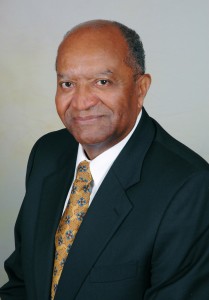 Percy A. Pierre is a systems engineer who has utilized his knowledge of engineering design and systems engineering to make a significant impact on the educational experiences of minority students in engineering. Dr. Pierre was the first African American to receive a Ph.D. in electrical engineering. Throughout his career, he has participated in many engineering research and education efforts as an engineering educator, a Dean of Engineering, a researcher at the RAND Corporation, a Program Officer for the Alfred P. Sloan Foundation, and Assistant Secretary of the Army for Research, Development and Acquisition from 1977-81, to name a few. It was at the Pentagon that he used systems engineering to manage the development and manufactures of the Army’s major weapons systems, the first African American to do so. This systems engineering approach was also utilized when he orchestrated the development in the early 1970s of many successful organizations that focus on supporting minorities in engineering. Currently, he directs the Sloan Engineering Program, a program he created that recruits, helps fund, and mentors engineering doctoral students from underrepresented groups.
Percy A. Pierre is a systems engineer who has utilized his knowledge of engineering design and systems engineering to make a significant impact on the educational experiences of minority students in engineering. Dr. Pierre was the first African American to receive a Ph.D. in electrical engineering. Throughout his career, he has participated in many engineering research and education efforts as an engineering educator, a Dean of Engineering, a researcher at the RAND Corporation, a Program Officer for the Alfred P. Sloan Foundation, and Assistant Secretary of the Army for Research, Development and Acquisition from 1977-81, to name a few. It was at the Pentagon that he used systems engineering to manage the development and manufactures of the Army’s major weapons systems, the first African American to do so. This systems engineering approach was also utilized when he orchestrated the development in the early 1970s of many successful organizations that focus on supporting minorities in engineering. Currently, he directs the Sloan Engineering Program, a program he created that recruits, helps fund, and mentors engineering doctoral students from underrepresented groups.
The profile below was authored by Alexandra Coso, Georgia Institute of Technology, based on an interview with Dr. Pierre in 2014.
Continue reading Percy A. Pierre: Approaching education from a systems engineering perspective

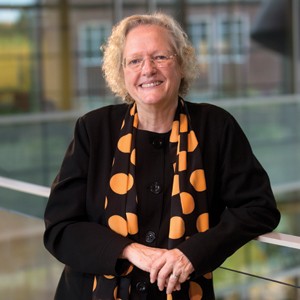 Leah H. Jamieson is the John A. Edwardson Dean of the College of Engineering at Purdue University. Trained in electrical engineering and computer science, Dr. Jamieson is an expert in speech processing, parallel processing, and computing. In the field of engineering education, she is best known for her work in creating the Engineering Projects in Community Service (EPICS) program at Purdue. Founded in 1995, EPICS was one of the first undergraduate integrated design programs at an engineering institution in the United States.
Leah H. Jamieson is the John A. Edwardson Dean of the College of Engineering at Purdue University. Trained in electrical engineering and computer science, Dr. Jamieson is an expert in speech processing, parallel processing, and computing. In the field of engineering education, she is best known for her work in creating the Engineering Projects in Community Service (EPICS) program at Purdue. Founded in 1995, EPICS was one of the first undergraduate integrated design programs at an engineering institution in the United States.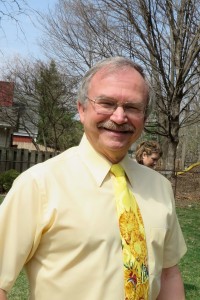 Spurred by the needs he saw in his students, Mike Pavelich became interested in science education and “how people think” early in his career. Following his passion to the Colorado School of Mines, he became interested in engineering education due to the influence of his colleagues. He co-authored a chemistry lab manual aimed at increasing analytical thinking titled Inquiries in Chemistry. He is also a co-founder of the EPICS program at Colorado School of Mines, which trains undergraduate students in evaluative thinking methods.
Spurred by the needs he saw in his students, Mike Pavelich became interested in science education and “how people think” early in his career. Following his passion to the Colorado School of Mines, he became interested in engineering education due to the influence of his colleagues. He co-authored a chemistry lab manual aimed at increasing analytical thinking titled Inquiries in Chemistry. He is also a co-founder of the EPICS program at Colorado School of Mines, which trains undergraduate students in evaluative thinking methods.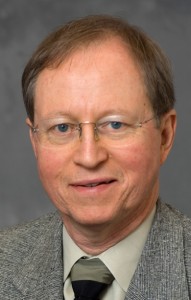 Karl A. Smith has been at the University of Minnesota since 1972. He retired from Civil Engineering in 2011 and currently has a part-time appointment in the STEM Education Research Center. In 2006, he joined the School of Engineering Education at Purdue University, where he helped start the doctoral program in Engineering Education. He first became interested in engineering education research while teaching an undergraduate course and pursued a Ph.D. in educational psychology. He has served as PI or co-PI on numerous NSF grants, workshops, centers, and projects; conducts workshops on cooperative learning for faculty; and has published eight books.
Karl A. Smith has been at the University of Minnesota since 1972. He retired from Civil Engineering in 2011 and currently has a part-time appointment in the STEM Education Research Center. In 2006, he joined the School of Engineering Education at Purdue University, where he helped start the doctoral program in Engineering Education. He first became interested in engineering education research while teaching an undergraduate course and pursued a Ph.D. in educational psychology. He has served as PI or co-PI on numerous NSF grants, workshops, centers, and projects; conducts workshops on cooperative learning for faculty; and has published eight books.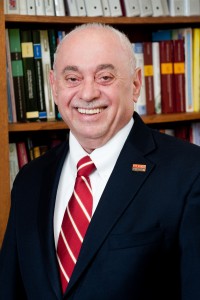 Louis Martin-Vega has served as the Dean of the College of Engineering at NC State since 2006, following his five-year tenure as Dean of the College of Engineering at University of South Florida. Dean Martin-Vega’s career in academic leadership has paralleled his career as a professor in industrial and systems engineering at the University of Puerto Rico at Mayaguez, University of Florida, Florida Institute of Technology, and Lehigh University, where he was Chair of Industrial and Manufacturing Systems Engineering. He has received multiple awards and recognitions for his involvement in the field of industrial engineering. He also served in several appointments with the National Science Foundation, including Acting Assistant Director of the Engineering Directorate. Dean Martin-Vega has also been a consultant to various industries.
Louis Martin-Vega has served as the Dean of the College of Engineering at NC State since 2006, following his five-year tenure as Dean of the College of Engineering at University of South Florida. Dean Martin-Vega’s career in academic leadership has paralleled his career as a professor in industrial and systems engineering at the University of Puerto Rico at Mayaguez, University of Florida, Florida Institute of Technology, and Lehigh University, where he was Chair of Industrial and Manufacturing Systems Engineering. He has received multiple awards and recognitions for his involvement in the field of industrial engineering. He also served in several appointments with the National Science Foundation, including Acting Assistant Director of the Engineering Directorate. Dean Martin-Vega has also been a consultant to various industries.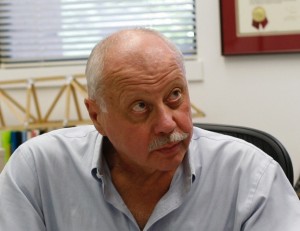 Clive Dym was Professor Emeritus of Engineering at Harvey Mudd College. While he spent much of the early part of his career as an engineering professor, Dr. Dym’s work in the field of engineering education started when he joined the faculty of Harvey Mudd in 1991. Through his work in revamping a freshman design course at Mudd, he became a significant voice in the movement to teach engineering design in the first year. As part of this work, he initiated the collaborative network that developed into the Harvey Mudd Design Workshops.
Clive Dym was Professor Emeritus of Engineering at Harvey Mudd College. While he spent much of the early part of his career as an engineering professor, Dr. Dym’s work in the field of engineering education started when he joined the faculty of Harvey Mudd in 1991. Through his work in revamping a freshman design course at Mudd, he became a significant voice in the movement to teach engineering design in the first year. As part of this work, he initiated the collaborative network that developed into the Harvey Mudd Design Workshops.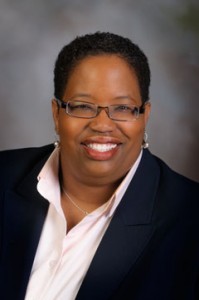 As one of the first people to receive an NSF CAREER award for work purely in engineering education, Stephanie Adams is a notable figure with a clear vision of what engineering can be. Through constant belief in the importance of her work, her presence in the field continues to give people hope and the belief that they too can succeed. Fueled by the realization that the status quo can and should be questioned, Dr. Adams has led research efforts in teaming and is currently putting her vision into reality as Department Head at Virginia Tech. She encourages all future engineering education pioneers to read as much as they can and talk to, collaborate, and learn with the people they admire in the field.
As one of the first people to receive an NSF CAREER award for work purely in engineering education, Stephanie Adams is a notable figure with a clear vision of what engineering can be. Through constant belief in the importance of her work, her presence in the field continues to give people hope and the belief that they too can succeed. Fueled by the realization that the status quo can and should be questioned, Dr. Adams has led research efforts in teaming and is currently putting her vision into reality as Department Head at Virginia Tech. She encourages all future engineering education pioneers to read as much as they can and talk to, collaborate, and learn with the people they admire in the field.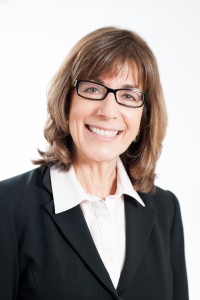 Susan Metz works at national and local levels to improve engineering education and to increase access, retention, and advancement of underrepresented groups in STEM fields. Metz has secured substantial federal, corporate, and foundation funding to support multi-institutional research, curriculum, and programmatic efforts, working with over 200 four-year colleges and universities, community colleges, and professional organizations. As executive director of diversity and inclusion at Stevens Institute of Technology, she catalyzes efforts to increase faculty and student diversity and to enhance the university culture to promote success for all faculty and students. Metz is a founder and past president of the Women in Engineering ProActive Network and has served on advisory boards of organizations that significantly influence national STEM policy, including the National Science Foundation and National Academy of Engineering. Metz is a recipient of the Presidential Award for Excellence in Science, Mathematics, and Engineering Mentoring and the Maria Mitchell Women in Science Award, and she is a Fellow of the Association for Women in Science.
Susan Metz works at national and local levels to improve engineering education and to increase access, retention, and advancement of underrepresented groups in STEM fields. Metz has secured substantial federal, corporate, and foundation funding to support multi-institutional research, curriculum, and programmatic efforts, working with over 200 four-year colleges and universities, community colleges, and professional organizations. As executive director of diversity and inclusion at Stevens Institute of Technology, she catalyzes efforts to increase faculty and student diversity and to enhance the university culture to promote success for all faculty and students. Metz is a founder and past president of the Women in Engineering ProActive Network and has served on advisory boards of organizations that significantly influence national STEM policy, including the National Science Foundation and National Academy of Engineering. Metz is a recipient of the Presidential Award for Excellence in Science, Mathematics, and Engineering Mentoring and the Maria Mitchell Women in Science Award, and she is a Fellow of the Association for Women in Science.